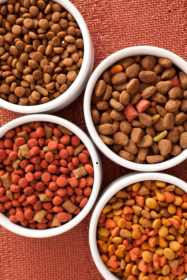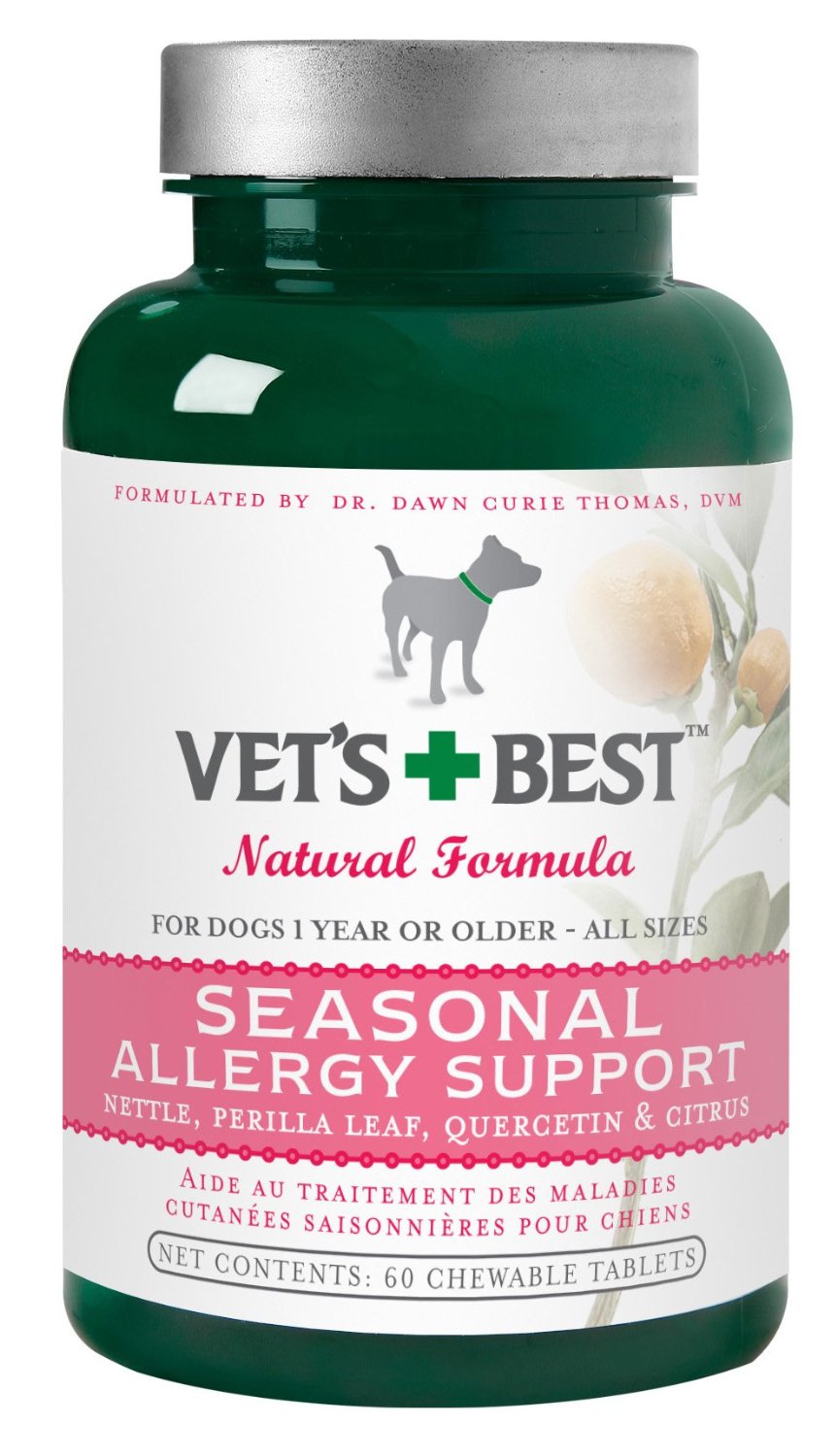Common Dog Food Allergies in Shih Tzu: Causes, Symptoms and Fixes
JUNE 13, 2019 | WRITTEN BY MOLLY
Dog food allergies make up about 10 percent of the allergies found in dogs today, and unfortunately the Shih Tzu dog breed are not immune to them.

According to veterinarians, allergies to food are third, behind the leading cause of allergies which are flea allergies; and then atopy or inhalant seasonal allergies.
If your Shih Tzu seems to itch all the time for no obvious reason, he could be allergic to one or more ingredients in his food.
Causes of Allergies in Dogs

Dog food allergies can occur in any dog.
They happen equally among males and females, and can affect dogs whether they are neutered, spayed or intact.
It can appear in dogs as young puppies when they are about five months old, or even when a dog is elderly.
Most food allergies seem to appear when a dog is between two and six years of age.
In many cases a dog with food allergies also has other kinds of allergies such as contact or inhalant allergies, which makes treatment more complicated.
Ingredients that can cause allergies in dogs
The most common dog food ingredients that cause food allergies are (in order) beef, dairy products, chicken, lamb, fish, chicken eggs, corn, wheat, and soy.
It is possible that some of these proteins are more likely to cause an allergic reaction than others.
However, it is likely that allergies to dog food develop because a dog is exposed to these proteins more often than to other proteins and dog food ingredients.
The more your dog is exposed to certain ingredients, whether a protein or other, the more likely he is to develop food allergies.
It is still unclear, however, why some dogs develop food allergies and others don’t.
It is suspected that the dog’s immune system plays a role in determining which dogs may develop these allergies.
There are some dog foods that are specifically for dog food allergies, like Natural Balance limited ingredient diets formula, a proven formula for dogs with allergies based on our unique protein and carbohydrate blend.
Another good line is The Farmers Dog. This line is a hypoallergenic canine diet which addresses food allergies or sensitivities.
You can find more suggestions for dog foods for allergies here
Dog Food Allergy Symptoms
Symptoms of dog food allergies are not unlike the symptoms of other allergies in dogs.
The symptoms most often seen are:
- Itching, especially around the dog’s face, paws, ears, legs, and the pits and stomach area, and around the tail.
Though not all itching is a symptom of a food allergy, it can also mean your Shih Tzu is missing something in their diet, like Omega 3’s, which can simply be added to their food.
- Some dogs also have recurring ear infections.
You may suspect allergies to dog food if your dog has repeated ear infections, especially if they are yeast infections.
- They may lose their hair, scratch continually, have skin infections from the repeated scratching, and develop hot spots.
The skin infections may clear up with antibiotics but they will return once the treatment stops.
- Some dogs with food allergies may also have more bowel movements than ordinary.
 Using the ground to scratch his back
Using the ground to scratch his backIt can be hard to determine if your dog has dog food allergies, as opposed to symptoms from other kinds of allergic reactions.
Food allergies are also more likely to be the culprit if there are skin problems appearing in a very young dog.
In addition, if your dog is having problems with allergies all year long, then it is likely to be food allergies.
Finally, if your dog has skin that itches and it doesn’t get better with treatment from steroids, then it is probably a food allergy.
Food Allergy Diagnosing
Dog food allergies can be difficult to pin down.
Before concluding that your dog has an allergy to food it is first necessary to rule out all of the other possible causes of your dog’s symptoms.
There are a number of issues that can cause similar symptoms such as:
- inhalant and flea bite allergies,
- sensitivities to internal parasites,
- sarcoptic mange, and
- bacterial and yeast infections.
Your veterinarian will need to examine your dog to make sure none of these things are causing your dog’s problems before moving on to food allergies.
Once your vet has narrowed things down and thinks that your dog has a food allergy you will need to perform a food trial for your dog.
This means that you will feed your dog a novel source of protein (a protein which your dog hasn’t eaten before so should not be allergic to) as well as a carbohydrate for three months.
There are some commercial foods available to make it easier to feed these food trials which your vet can recommend, or you may wish to use a homemade diet.
This will be the only thing that your dog eats for three months.
During this time your dog’s skin should clear up because he won’t be coming in contact with anything that causes his food allergy.
After this time you will place your dog back on his original food to see how he reacts. If his symptoms return then it will confirm that he has a food allergy.
How to help your shih tzu with dog food allergies
|
Dog food allergies are treated by simply avoiding the foods that cause the allergies. The food trials will help you and your vet identify the ingredients that cause your dog’s problems. You then help your dog avoid these ingredients and choose a food he can eat without that do not create allergy symptoms. Additionally, you can give them a supplement like Vet's Best seasonal allergy soft chews that helps support their immune system. |
In the meantime, your vet may prescribe antihistamines, fatty acids, and steroids to help your dog.
You may be able to find some good commercial foods to feed your dog that won’t trigger his allergies.
Although some people prefer to make homemade meals for their dogs.
The upside to making their food yourself is that you control what goes into it and can make large batches more economically and freeze it for later consumption.
The downside is it will take at least a couple hours a week to make it and you'll have to make sure that that it contains the required nutrients in the amount needed for your dog.
But your vet may be able to help you determine which nutrients needed and how much.
If you choose to make homemade food for your Shih Tzu, keep in mind that it is possible that your dog will develop new allergies to the new foods he is eating so you will have to remain vigilant about your dog’s condition.
- Home
- Shih Tzu diet
- food allergies




